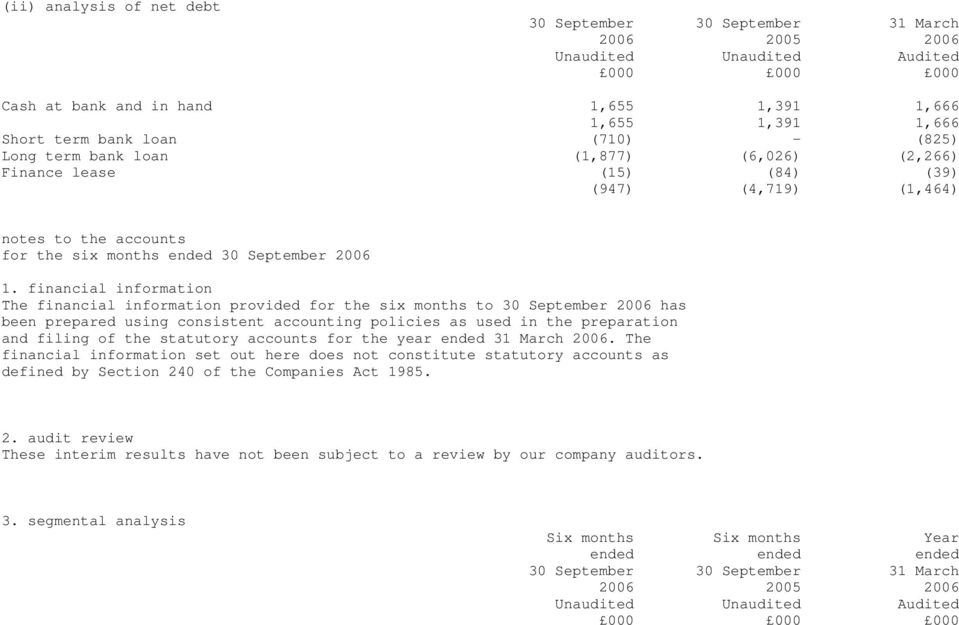
If working overtime is burning you out in your personal life, then it’s time to either scale back the hours or do away with overtime entirely. Another reason that working overtime isn’t going to be worth it is if you have overspending habits. That said, working overtime is an effective way to demonstrate to your employer that you mean business. One reason many people decide not to work overtime is that they believe most of their earned income ends up going to taxes. When it comes to deciding whether working overtime is worth the risk of taking on more taxes or not, you may be unsure how the math works.
Some people may struggle with the idea of working more hours even though they’re earning more money. As a result, you’ll have more taxes taken out of your income because you’re in a higher tax bracket. As an example, if you make $30,000 a year without overtime, then your tax bracket falls into the $9,951 to $40,545 category according to the 2021 tax season.
What Time Does McDonald’s Open? (Updated
Some employers choose to pay a higher overtime rate when employees work extra hours on these particular days, but it’s not required by law. For covered, nonexempt employees, the Fair Labor Standards Act (FLSA) requires overtime pay (PDF) to be at least one and one-half times an employee’s regular rate of pay after 40 hours of work in a workweek. Some exceptions apply under special circumstances to police and firefighters and to employees of hospitals and nursing homes. Assuming you are non-exempt, you are entitled to one and one-half times your regular rate of pay for hours worked over 40 in a workweek. One common mistake is that employers pay overtime based only on the employees’ hourly rate rather than their regular rate of pay, which often includes other types of compensation such as nondiscretionary bonuses. If you receive bonuses, shift differentials, or other pay in addition to your hourly rate, it is possible that your employer may not be calculating your overtime rate correctly.
Assuming that overtime hours are worked, then an employee is entitled to overtime compensation. Although many employers and employees assume that overtime is calculated simply by multiplying their hourly rate by 1.5, it is not always that easy. If you have any questions about how your overtime pay rate is being calculated, you should speak with our overtime lawyers. The federal government requires employers to pay their nonexempt employees (which includes salaried employees earning less than 35,568 dollars per year) an overtime rate of 1.5 times their regular hourly rate. An employer who requires or permits an employee to work overtime is generally required to pay the employee premium pay for such overtime work. Employees covered by the Fair Labor Standards Act (FLSA) must receive overtime pay for hours worked in excess of 40 in a workweek of at least one and one-half times their regular rates of pay.
What is net pay?
Keep in mind that this value may vary across countries and companies, so make sure to enter the correct multiplier into the overtime calculator. Stay in touch with the equivalent of the Department of Labor in your state or jurisdiction to make certain that your overtime decisions are lawful. From this information, our calculator will give you the details you need to know regarding your overtime. Official websites use .govA .gov website belongs to an official government organization in the United States. Working overtime is not worth it if it starts to impact your personal relationships. Another big cost is the emotional toll that extra working hours can bring.
- The FLSA, with some exceptions, requires bonus payments to be included as part of an employee’s regular rate of pay in computing overtime.
- You shouldn’t do it too often, however, since you’re going to be costing the business more money in the long run.
- These articles and related content is the property of The Sage Group plc or its contractors or its licensors (“Sage”).
- Some companies pay 2.5 times the standard rate for overtime and sometimes even more.
- If you find your mental wellness slipping because you’ve taken on more hours at work, then it’s worth limiting those hours.
This overtime calculator is a tool that finds out how much you will earn if you have to stay longer at work. All you have to do is provide some information about your hourly wages, and it will calculate the total pay you will receive this month. In some countries or companies, managers and directors do not get overtime pay. However, in most companies, they get a bonus which is typically linked to their performance or annual profits. They must receive pay for hours worked over 40 hours in a workweek at a rate not less than one and one-half their regular rate of pay.
Overtime
The US government defines overtime as working more than 40 hours in a workweek. A common misunderstanding of how taxes and overtime work is that the wages earned during overtime are taxed at a different rate. 🙋 Make sure to use our gross to net calculator to determine how much you could take home from your total pay after the deduction of taxes. What is overtime Or you might find our budget calculator, especially when you plan to monitor or track your expenses. Please note that the information provided, while authoritative, is not guaranteed for accuracy and legality. The site is read by a world-wide audience and employment laws and regulations vary from state to state and country to country.
So, an employee who works 10 hours on Monday and seven hours a day for the next four days are not considered to have worked overtime for purposes of pay in states that keep the 40 hours standard. The DOL updated both the minimum weekly standard salary level and the total annual compensation requirement for “highly compensated employees” to reflect growth since 2004 in wages and salaries. Some companies pay 2.5 times the standard rate for overtime and sometimes even more. Within the United States, the different states may have their own legislation regarding OT.

Please seek legal assistance, or assistance from State, Federal, or International governmental resources, to make certain your legal interpretation and decisions are correct for your location. However, certain instances exist where an employer might want to pay employees double-time pay as a goodwill gesture to employees. Two that immediately come to mind are when an employee works on a holiday or when an employee must miss a company-sponsored event because the employee has to work. Note that certain states do not permit the fluctuating workweek calculation method. If you are eligible, the Fair Labor Standards Act gives you the right to earn overtime pay. Fact Sheet on the Overtime Pay Requirements of the Fair Labor Standards Act (FLSA) (PDF)
Provides general information concerning the application of the overtime pay provisions of the FLSA.
How much overtime pay would I get by working 10 hours more monthly?
Unless exempt, employees covered by the Act must receive overtime pay for hours worked over 40 in a workweek at a rate not less than time and one-half their regular rates of pay. There is no limit in the Act on the number of hours employees aged 16 and older may work in any workweek. The FLSA does not require overtime pay for work on Saturdays, Sundays, holidays, or regular days of rest, unless overtime is worked on such days. The only time overtime pay is given on these days is when it pushes an employee’s hours past 40 hours in that workweek.
- In some other jurisdictions, such as Canada, employers might be required to pay the overtime at the higher rate (e.g. 1.5 times the normal rate), but also be allowed to require time off in lieu at the normal rate.
- All the money that you earn from working overtime can go towards funding the project.
- Some people may struggle with the idea of working more hours even though they’re earning more money.
- While a generalized overtime definition refers simply to those hours worked outside of the standard working schedule, overtime commonly refers concurrently to the employee’s remunerations of such work.
Under the Fair Labor Standards Act “primarily engaged” does not necessarily mean at least half, but California wage-and-hour laws, working less than half of exempt duties automatically eliminates the overtime exemption. Employers are not required to pay exempt employees overtime but must do so for non-exempt employees. Legally, by the Fair Labor Standards Act passed in 1938, any hours worked by an employee which exceed the standard 40-hour work week define overtime hours and are subject to overtime remuneration rates. Employment Law Guide-Minimum Wage and Overtime Pay – describes the statute and regulations administered by DOL that regulate minimum wage and overtime pay. Besides all of that, let’s take a look at the formal overtime definition. Overtime is the amount of time that an employee works beyond regular working hours.
Is Overtime Time and a Half?
Under the FLSA, overtime pay is additional compensation (i.e., premium pay) that employers must pay to nonexempt employees who work more than 40 hours in a workweek. As previously stated, the federal rate is time and one-half the regular rate of pay, however, states that have their own laws may require daily overtime payments or double time premium pay. Overtime pay is earned when non-exempt employees work more than 40 hours in any workweek. If that happens, then they are entitled to be paid overtime at the rate of one and one-half times their regular rate of pay.

Many countries design their labor laws to prevent employees from being forced to work long overtime hours. Furthermore, they usually provide regulations of overtime compensation. Under the FLSA, any non-discretionary bonuses or commission earned by a nonexempt employee must be factored into their regular rate of pay. The calculation method varies depending on if the bonus or commission payment is allocated by the workweek or some other frequency, e.g., monthly, quarterly, annually. In cases where an employee is subject to both the state and federal overtime laws, the employee is entitled to overtime according to the higher standard (i.e., the standard that will provide the higher overtime pay).
To help relieve some of their debt, workers can choose to work a little overtime. With prices increasing and wages staying about the same, it doesn’t give Americans much room to pay off their debts. Here are a few reasons working overtime might be worth it for your situation. That’s because you’re working more for the profit of the business at the cost of your own energy, health, time with family, etc. If you were to work overtime, then you might end up with a gross income of $45,000. In terms of how much tax you’ll owe, it’s $995 plus 12% of your income after $9,950.
Milwaukee city employees average, highest paid salaries in 2022 – Milwaukee Journal Sentinel
Milwaukee city employees average, highest paid salaries in 2022.
Posted: Mon, 21 Aug 2023 11:02:34 GMT [source]
It allows you to start your own business while not having to worry about feeding your family, paying your rent, or paying your mortgage. This might be a business venture that you’re exploring, a new hobby, or even a vacation. Depending on how much overtime you work, you could start to put together a nice investment.
Another common mistake employers make is not properly calculating their employees’ hours worked. These hourly overtime pay limitations do not apply to prevailing rate (wage) employees or to FLSA overtime pay. One is used for hourly employees and the other is used for salaried employees.